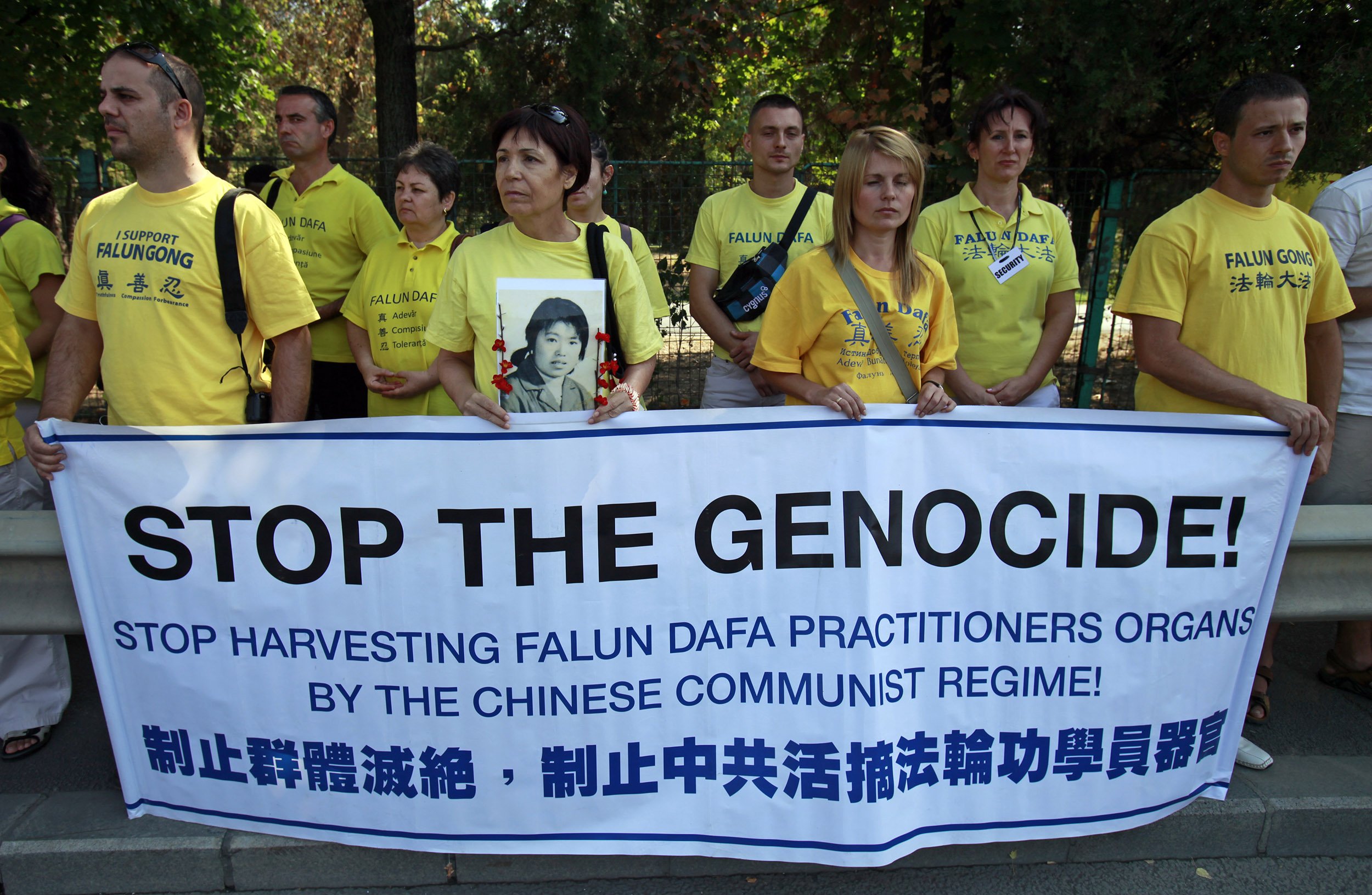
It sounds too unbelievable to be true, but dozens of highly respected investigators, scholars and government officials around the world claim the Chinese government is harvesting organs from groups considered to be political or cultural enemies of the regime currently in power.
It's no secret that there is a shortage of desperately needed organs in China (and around the world), and with tens of thousands of healthy Chinese prisoners locked away for all sorts of absurdities, experts say the government has secretly turned to the prison population as its source to fill the growing demand for organs and to provide "organ tourists" from Western nations with potentially life-saving treatments.
It's been widely known the Chinese government has been allowing what they call "organ donations" from prisoners, especially those prisoners on death row, for many years. Leaders in the international medical community, government officials and organizations have actively protested against this practice, arguing prisoners locked away in a government's prison don't actually have the true "freedom" necessary to "donate" anything.
Because China has historically provided very little data about its prison population, organ donations, or the treatment of prisoners in general, many human rights activists have argued it was possible China was forcing some of its prisoners to give their organs.
Many Chinese dissident groups, including members of Christian house churches, Tibetans and especially followers of Falun Gong, an outlawed peaceful Chinese religious movement created in 1992, have made allegations of extreme abuse against the Chinese government, including forced organ harvesting, since the 1990s.
Independent investigations by Ethan Gutmann, author of The Slaughter: Mass Killings, Organ Harvesting, and China's Secret Solution to Its Dissident Problem, David Kilgour, a human rights activist and former member of the Canadian House of Commons, and documentarian Ken Stone reveal the claims by Chinese dissident groups such as Falun Gong were true, although the exact size of the problem is difficult to estimate because of the lack of transparency in China.
"It is known that Chinese surgeons perform the removal procedure [on political prisoners] and sometimes the 'donor' has still been alive during this process—the organ-removal process is what actually kills them," Katrina Bramstedt told us in an interview. Bramstedt is a professor at Bond University in Australia and an outspoken critic of the practice of prison organ harvesting.
When we asked Bramstedt who these prisoners are and whether specific groups were being targeted, she replied, "[They are] prisoners of conscience—people who have beliefs that are contrary to Chinese policy, such as religious beliefs or philosophical beliefs."
In December 2014, the Chinese government announced it would no longer harvest organs from prisoners who have been executed, but Doctors Against Forced Organ Harvesting says data show organ donations in China have actually increased, which seems extremely unlikely if the practice has truly ceased, and it says China still refuses to commit to ending organ harvesting from prisoners of conscience, such as some Christians and Falun Gong.
Bramstedt says it's impossible to have a truly "willing" donor when prisoners are involved. "Because they are prisoners, they are already captive and under government coercion, power, influence, and control," Bramstedt said.
Other experts, however, believe prisoners should be allowed to choose freely to donate their organs, but only if the government involved has a history of defending human rights and only if independent watchdog groups are able to conduct independent investigations to ensure rights are not being violated, neither of which currently exists in China.
According to a 2007 report by David Matas and Kilgour, titled Bloody Harvest, the China International Transplantation Network Assistance Centre website listed massive prices for available transplant organs in 2006, including $98,000 to $130,000 for a liver and $150,000 to $170,000 for a lung, which means there is a financial incentive for Chinese officials to continue this unethical practice.
U.S. leaders must make it clear to Chinese officials prisoner organ harvesting, as it is currently practiced, is unethical and must not be tolerated under any circumstances. Without consistent pressure from the United States and other nations and international governing bodies, it's unlikely this humanitarian crisis will end.
Jacquelyn Corley is a neurological surgery resident at Duke University Medical Center and a member of the Duke Division of Global Neurosurgery and Neuroscience. Justin Haskins writes about public policy from North Carolina.
Uncommon Knowledge
Newsweek is committed to challenging conventional wisdom and finding connections in the search for common ground.
Newsweek is committed to challenging conventional wisdom and finding connections in the search for common ground.
About the writer
To read how Newsweek uses AI as a newsroom tool, Click here.








